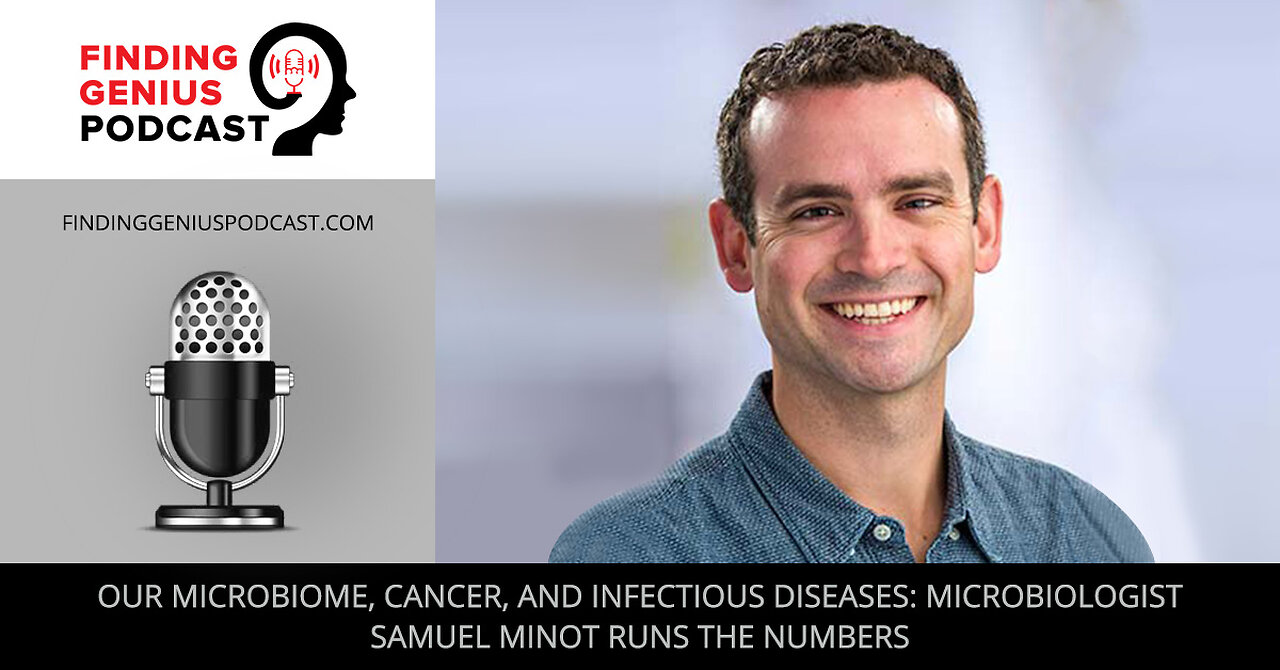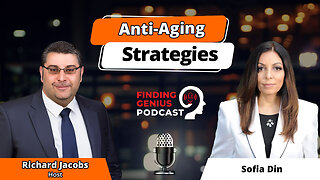Premium Only Content

Our Microbiome, Cancer, and Infectious Diseases Microbiologist Samuel Minot Runs the Numbers
A microbiologist by training, Sam Minot now works as a computational biologist helping other scientists understand the data between of human microbiome and health connections.
In this podcast, he explains
1) Why the complexity of bacteria and viruses is important in how scientists might approach infectious viruses and infectious diseases,
2) Why is it difficult to culture "all" bacteria and what that means for microbiome study approaches, and
3) How approaches that prioritize gene-level impact on human health can lead to microbiome-based therapeutics for diseases like cancer.
Samuel Minot is a Staff Scientist with the Microbiome Research Initiative in the Vaccine and Infectious Disease Division of the Fred Hutch Cancer Research Center. He begins this conversation with a foundational question in microbiology: how do the microbes on us impact our health? He then discusses the complexity of the interaction of bacteria and the viruses that infect them, also called phages.
He offers examples of new discoveries constantly upending our picture of what viruses and bacteria can do and ways infectious viruses impact some bacteria and cause disease. As an example, he discusses cholera, which is harmful because of a satellite virus that infects a bacterium: the two together make the disease.
He then lays the ground for why it is important to prioritize a gene-level study of our microbiome by describing the impossibility of culturing every bacterium. He describes what functional annotation is and how that concept allows him to identify genes that affect human health and work to understand data at this level. He talks about the big impacts in his field, namely newer findings on how the microbiome influences the treatment of cancer. Studies show that the kinds of microbes in our gut relate to our immune response's handling of different treatments to fight the cancer. In other words, the immune system is poised to respond to cancer treatment based on the microbiome. This is leading to hopeful microbiome-based therapeutic treatments for cancer.
For more, see https://www.fredhutch.org/en/research/divisions/vaccine-infectious-disease-division.html and Sam Minot's blog at minot.bio.
Available on Apple podcast: apple.co/2Os0myK
-
 24:40
24:40
FGP
15 days agoWhere Science Meets Beauty: Anti-Aging Strategies With Sofia Din
49 -
 59:49
59:49
The Quartering
3 hours agoMTG MELTDOWN On X, Hasan Piker Runs From Ben Shapiro & AI Nightmare!
86.4K35 -
 1:16:24
1:16:24
DeVory Darkins
4 hours agoDISTURBING: Eric Swalwell left DUMBFOUNDED after he gets confronted about trans athletes
69.9K40 -
 LIVE
LIVE
Dr Disrespect
6 hours ago🔴LIVE - DR DISRESPECT - ARC RAIDERS - RANDOM SQUADS
1,777 watching -
 2:06:36
2:06:36
Side Scrollers Podcast
6 hours agoThis is the Dumbest Story We’ve Ever Covered… | Side Scrollers
32.5K8 -
 1:13:26
1:13:26
Steven Crowder
8 hours ago🔴 Jay Dyer on Hollywood, The Occult, and the Attack on the American Soul
251K185 -
 1:26:28
1:26:28
Sean Unpaved
5 hours agoNFL Thanksgiving Games Are Going To Be ELECTRIC! | UNPAVED
30.2K3 -
 29:07
29:07
The Rubin Report
7 hours agoAre Megyn Kelly & Erika Kirk Right About Our Political Divisions?
71.6K55 -
 27:09
27:09
VINCE
8 hours agoSaving America's Schools with Norton Rainey | Episode 177 - 11/26/25 VINCE
182K92 -
 2:03:57
2:03:57
Benny Johnson
7 hours agoFBI Director Kash Patel Makes January 6th Pipe Bomber Announcement: Massive Breakthrough, Stay Tuned
136K113